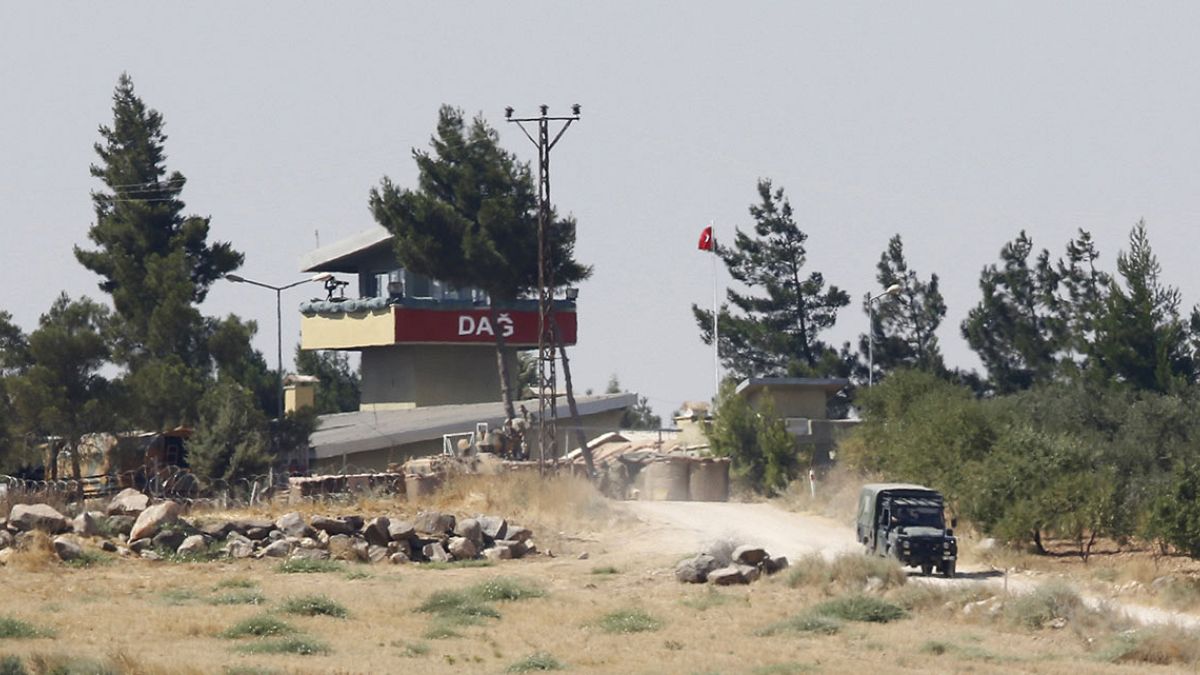Turkey’s decision to strike targets in Syria marks a dramatic change in its policy towards its neighbour. But what is Turkey’s new plan for Syria.
Bitter past
Turkish-Syrian relations have been bitter since the birth of both modern nations following the First World War. A territorial disagreement over the modern Turkish province of Hatay was the first point of conflict. Despite being claimed by Ankara under the Turkish National Pact of 1920, Hatay remained part of the French mandate of Syria until 1938. Even then, the decision of the autonomous parliament to join Turkey in 1939 was never accepted by Syria and poisoned the relations for decades.
The sharing of water caused another long-running problem. Turkey’s construction of dams on the Euphrates and Asi rivers, limiting the flow across the frontier, caused resentment. But perhaps the most decisive deterioration in the relationship came when Bashar Assad’s father Hafez’s provided bases and support for the PKK (Kurdish Workers Party) in the 1980s and 1990s during their conflict against Turkey.
From brink of war to friendship
Turkey’s decision to act against Syria to cut its support to PKK in 1998, changed the dynamic and under threat of military attack Damascus brought to an end the sanctuary it had offered to PKK leader Abdullah Öcalan. The two countries signed the Adana protocol to end hostilities.
As a sign of the new detente, Turkish president Ahmet Necdet Sezer even attended the funeral of Hafez Assad. During the next 10 years, the two countries were firm allies and Ankara even helped the Assad regime escape international isolation after the assassination of Lebanese prime minister Rafic Hariri. Syria became key to Turkey’s “zero problems with neighbours” policy and its openning to the Arab World.
Civil War and deterioration
However, the civil war that erupted in Syria, marked another reversal in the relationship between the two governments. After holding off for a few months in the hope of a compromise, Turkey sided with the popular uprising and openly backed the removal of Assad. The opposition Syrian National Council was allowed to meet in Turkey while borders and bases were opened up to rebel groups. One consequence of this position was a surge of 2 million refugees into Turkey and the security problems that stemmed from arms and fighters massing around the border area.
As ISIL expanded geographically and militarily, bringing the battle of Kobani onto Turkey’s doorstep and even leading attacks inside the territory, the Erdogan government had to review its policy once more.
New Plans for Syria
After the bombing in Suruç in which 32 people were killed, Turkey officially changed its priorities and elevated ISIL alongside the PKK to the position of the top threat to national security. The previous objective of removing the Assad regime, with the hope of an end to the civil war, was consequently downgraded.
The change marks a de facto recognition by Ankara that the government in Damascus will be able to hold onto some degree of power for the foreseeable future and therefore the problems closest to home need to be dealt with.
Buffer Zone
For a long time Turkey has wanted to implement a no-fly-zone in Syria and a buffer zone monitored by the international community. But Russia and China have blocked all attempts aimed at establishing an international mission in Syria, and other allies are unwilling to foot the bill or risk the lives of thier troops.

Now by allowing US aircraft to use İncirlik Air Base and other sites, Turkey will effectively be able to ensure a zone free from ISIL along its border. The Free Syrian Army will be allowed to fill the void ensuring no Turkish boots are needed on the ground.
Turkey is also is helping to create a 5,000 strong militia of ethnic Turks to control the area betweenthe border and Jarablus, on the West of Euphrates. This area will also be a vital corridor for refugees in the event of an escalation of fighting in Aleppo.
PKK and the Kurds
In making these efforts, Turkey also hopes to stop the PKK and its affiliates from earning legitimacy in the eyes of international community. It seems for now, the removal of Assad is a secondary goal behind ISIL, border security and Kurdish aspirations
